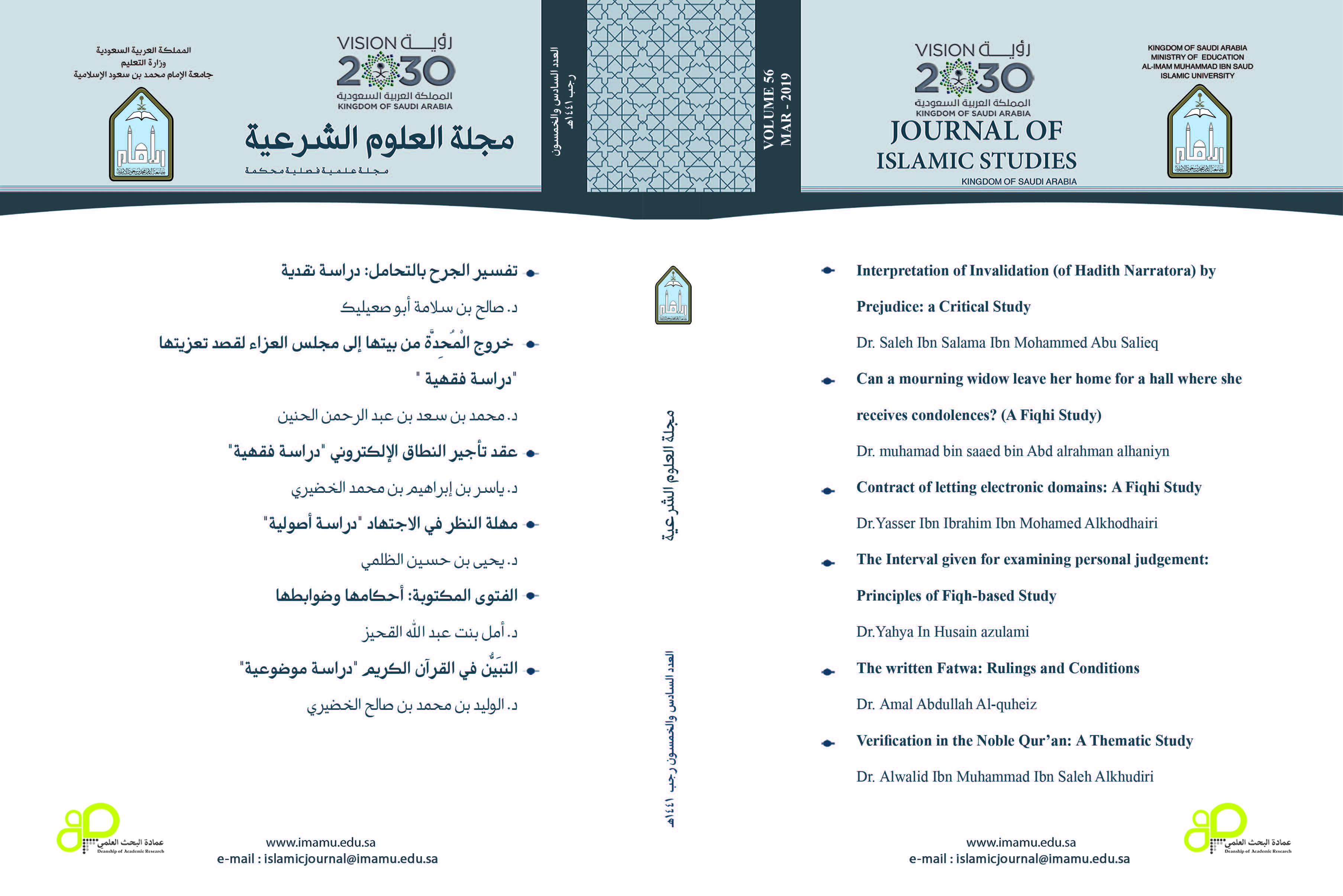Interpretation of Invalidation (of Hadith Narratora) by Prejudice: a Critical Study
Abstract
This paper explores an important barrier for accepting the invalidation of Hadith narrators (aljarh) and a defect that out rules it, i.e. the probability of prejudice on the part of the critical invalidator. The main contribution of this paper lies in discussing these views and interpretations implying prejudice in describing some accounts of scholars specialized in the discretization of narrators to ascertain the validity and reliability of these interpretations, and to analyze the data and evidence that can help us understand the reality of those accounts accurately, apart from common conjectures and stereotyping.
A sign of this type of clamor in this issue is that it intermingles with other issues like the narration of a fabricator, strictness in hadith invalidation, and exaggeration in forming terms. Therefore, the most important contribution of this study is to make a clear distinction between them, and using realistic scholarly methods to control it and avert the misuse of this issue.
This can be done through establishing theoretical foundations and and practical analysis of examples that have been viewed as prejudice. According to the author, no instance of apparent prejudice has been identified due to the evidence that disregard prejudice in the invalidation of Hadith narrations.




